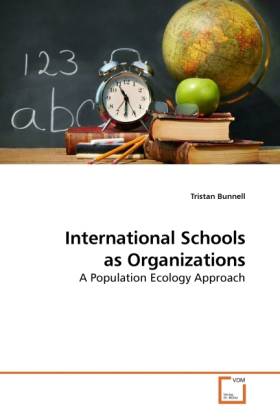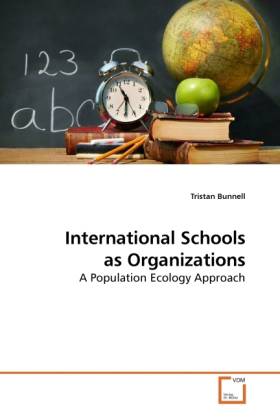
Door een staking bij bpost kan je online bestelling op dit moment iets langer onderweg zijn dan voorzien. Dringend iets nodig? Onze winkels ontvangen jou met open armen!
- Afhalen na 1 uur in een winkel met voorraad
- Gratis thuislevering in België vanaf € 30
- Ruim aanbod met 7 miljoen producten
Door een staking bij bpost kan je online bestelling op dit moment iets langer onderweg zijn dan voorzien. Dringend iets nodig? Onze winkels ontvangen jou met open armen!
- Afhalen na 1 uur in een winkel met voorraad
- Gratis thuislevering in België vanaf € 30
- Ruim aanbod met 7 miljoen producten
Zoeken
International Schools as Organizations
A Population Ecology Approach
Tristan Bunnell
Paperback | Engels
€ 77,95
+ 155 punten
Omschrijving
The diverse body of educational institutions termed 'international schools' have grown enormously in number and profile over the past four decades yet have received little attention as 'organizations'. This book is based upon research exploring the broad area of public relations activity. In particular, the organizational culture of 'informality' and 'isolation' was investigated, as a possible distinct feature. The conclusion drawn was that international schools in the main display a strong Anglo-American organizational culture characterized by high levels of individuality and freedom, coupled with a 'family culture' more normally found in Japanese organizations. This book offers a retrospective analysis, asserting that international schools can be viewed as a 'flexible' and 'functional' type of organization. From a population ecology perspective, they appear to be a 'strong species', with a high survival rate, and an ability to adapt to changing economic and political environments. This book will be of interest to career international educators, administrators, and all other personnel interested in the sustainable governance of this type of school.
Specificaties
Betrokkenen
- Auteur(s):
- Uitgeverij:
Inhoud
- Aantal bladzijden:
- 208
- Taal:
- Engels
Eigenschappen
- Productcode (EAN):
- 9783639219722
- Verschijningsdatum:
- 29/11/2009
- Uitvoering:
- Paperback
- Formaat:
- Trade paperback (VS)
- Afmetingen:
- 152 mm x 229 mm
- Gewicht:
- 312 g

Alleen bij Standaard Boekhandel
+ 155 punten op je klantenkaart van Standaard Boekhandel
Beoordelingen
We publiceren alleen reviews die voldoen aan de voorwaarden voor reviews. Bekijk onze voorwaarden voor reviews.











